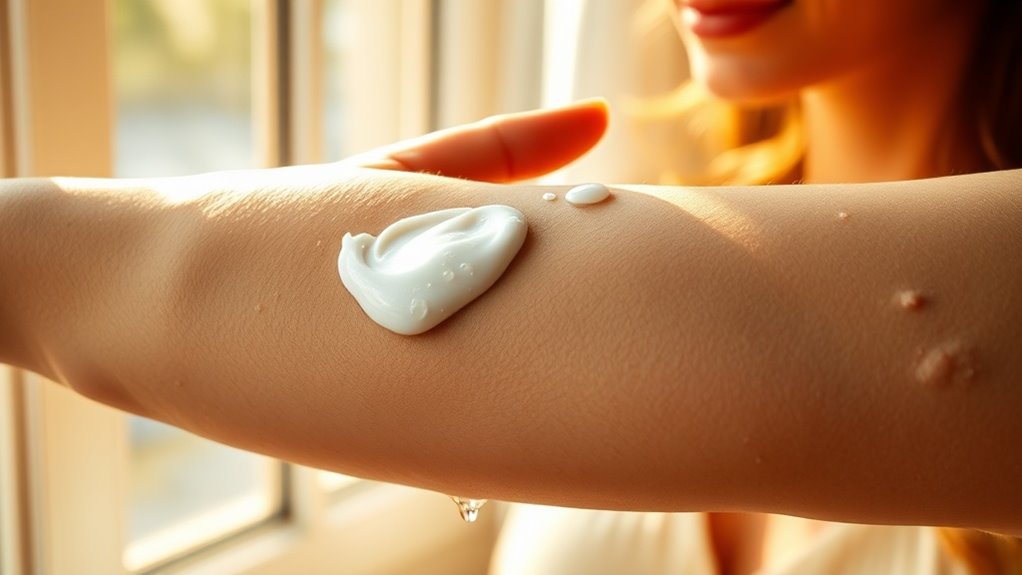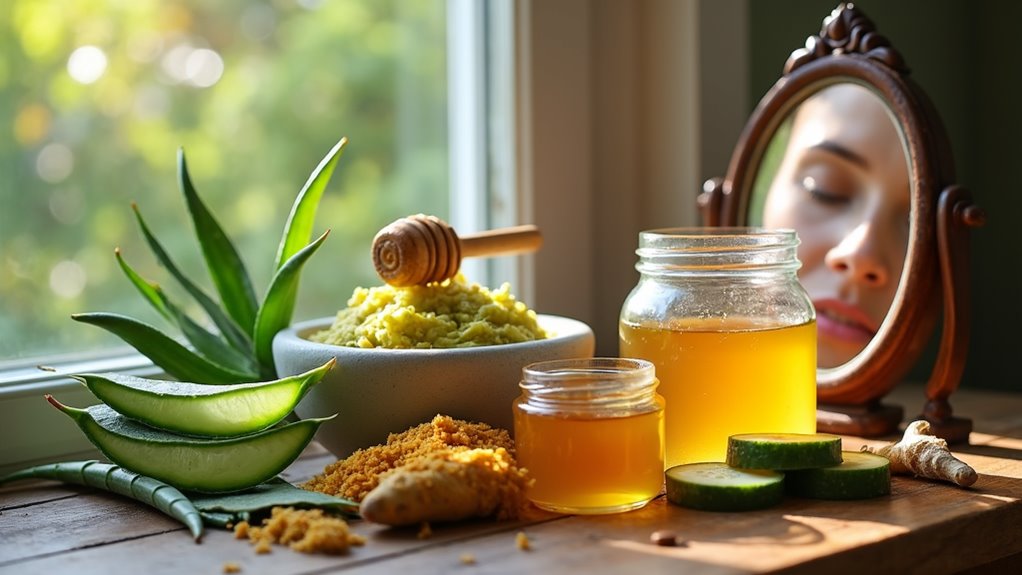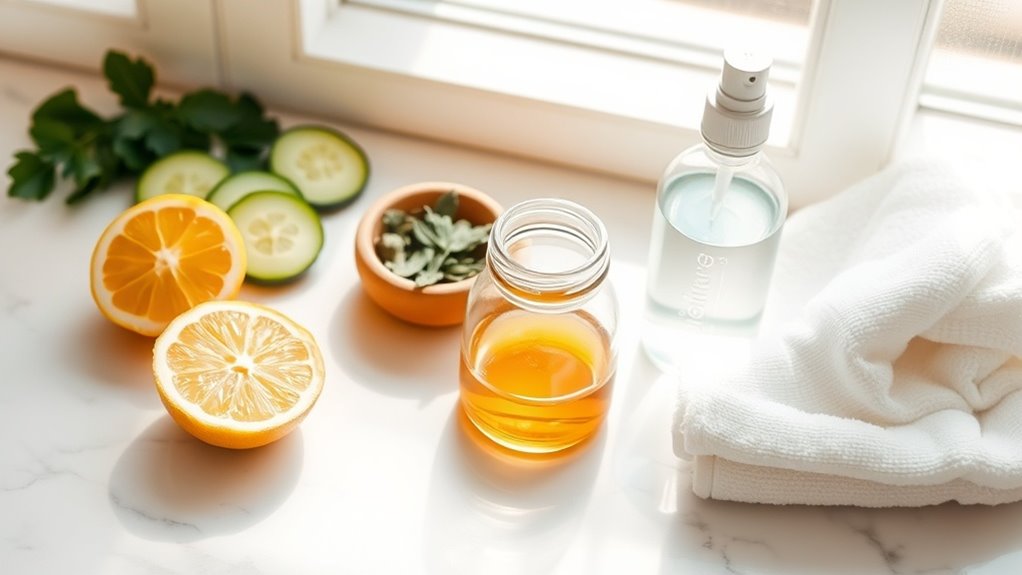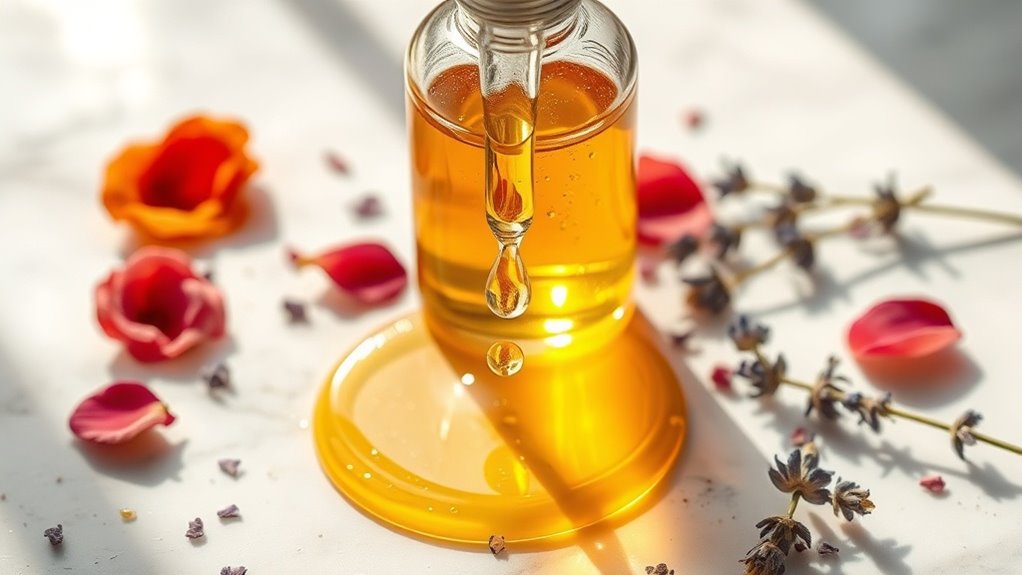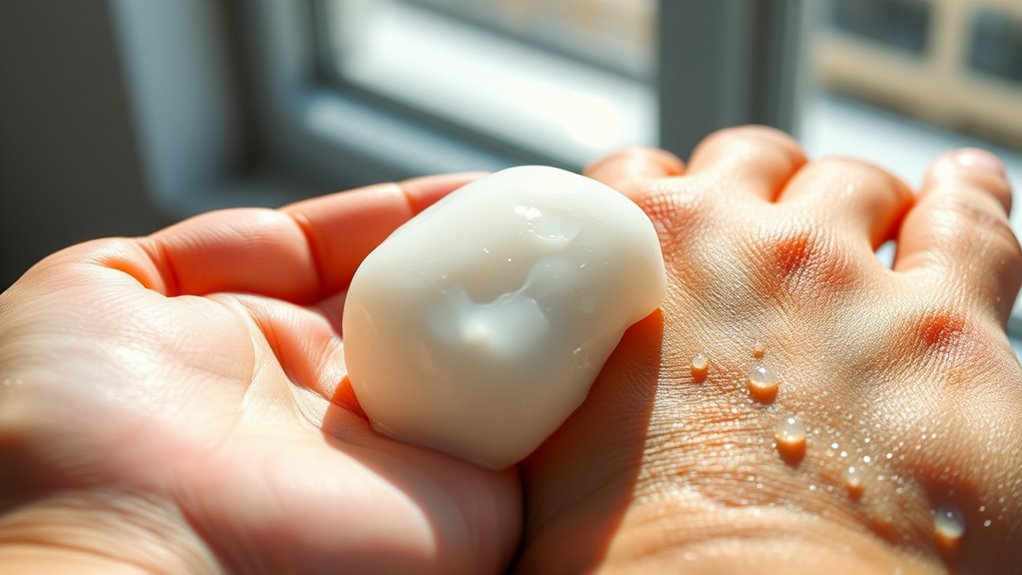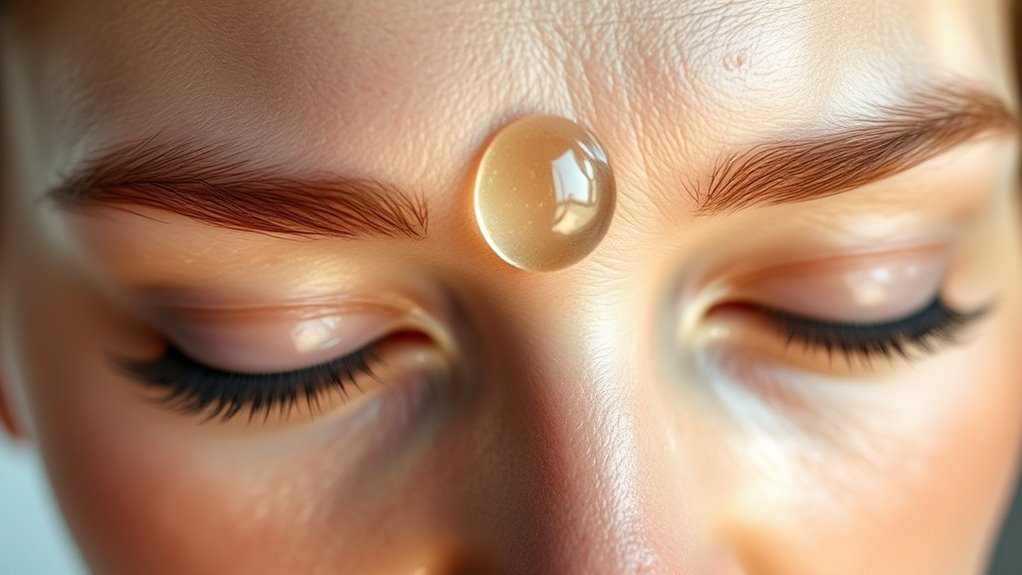Dry Skin No More- What Finally Helped Me
My Dry Skin Journey: The Breaking Point
After struggling with severe dry skin for over a decade, I reached my breaking point during a particularly harsh winter when my facial skin became so dehydrated that it developed painful cracks and fissures.
Like researching dry cough remedies for adults, I meticulously documented each symptom and trigger. The constant tightness, flaking, and irritation affected my daily activities and self-confidence.
My skin’s barrier function was severely compromised, making it susceptible to infections and environmental damage. Medical intervention became necessary when over-the-counter moisturizers proved ineffective at addressing the underlying causes of my chronic skin dehydration.
Understanding the Root Causes
While many people attribute dry skin solely to external factors, the underlying causes often stem from multiple interconnected mechanisms.
Your skin’s barrier function depends on complex interactions between cellular processes, environmental conditions, and lifestyle factors.
-
Impaired lipid production in the stratum corneum disrupts moisture retention
-
Genetic variations affecting filaggrin protein synthesis compromise barrier function
-
Inflammatory responses triggered by microbiome imbalances accelerate water loss
-
Hormonal fluctuations alter sebum production and cellular turnover rates
-
Compromised aquaporin channels reduce water transport between skin layers
Incorporating probiotic-rich foods into your diet can also help strengthen your skin’s protective barrier.
Understanding these root causes is essential for developing an effective treatment strategy that addresses your specific skin concerns.
Lifestyle Changes That Made a Difference
You’ll need to make critical lifestyle adjustments to improve your dry skin condition, starting with maintaining consistent hydration throughout the day.
Your sleep schedule directly impacts skin repair and regeneration, so it’s essential to establish regular sleep patterns of 7-9 hours nightly.
Managing your daily stress levels through proven techniques like meditation or exercise can reduce cortisol production, which significantly affects your skin’s moisture barrier. Additionally, keeping your home humidity between 30-50% can prevent nasal congestion, ensuring that dry skin is alleviated through an accommodating environment.
Stay Hydrated All Day
Because internal hydration directly impacts skin moisture levels, making specific lifestyle changes to increase daily water intake can significantly improve skin health.
You’ll need to implement consistent hydration practices throughout your day.
- Set hourly water intake reminders on your phone
- Keep a 32-ounce water bottle at your desk and refill it twice daily
- Consume water-rich foods like cucumbers, celery, and watermelon
- Replace caffeinated beverages with herbal teas or fruit-infused water
- Track your daily intake using a mobile hydration app
Monitor your urine color – it should maintain a light, straw-like shade, indicating proper hydration levels.
Fix Your Sleep Schedule
Since quality sleep directly influences skin repair and regeneration, establishing a consistent sleep schedule represents a crucial step in managing dry skin conditions.
Your skin’s repair mechanisms peak between 11 PM and 4 AM, when cell regeneration increases by up to three times its daytime rate.
Set a fixed bedtime and wake-up time, aiming for 7-9 hours of sleep.
Your body’s circadian rhythm regulates sebum production and skin barrier function. Studies show that poor sleep reduces skin hydration by 24% and impairs barrier recovery.
Install blackout curtains, maintain room temperature at 65-68°F, and avoid blue light exposure two hours before bed.
Manage Daily Stress Levels
While many people focus solely on topical treatments, chronic stress can significantly impact skin health by triggering increased cortisol production, which reduces hyaluronic acid synthesis and compromises the skin barrier.
To effectively manage your daily stress levels and support skin health:
- Practice mindful meditation for 10-15 minutes daily
- Implement regular exercise routines, aiming for 150 minutes weekly
- Maintain consistent sleep-wake cycles aligned with your circadian rhythm
- Use deep breathing techniques during high-stress moments
- Set boundaries with work and digital device usage
These evidence-based stress management strategies will help regulate cortisol levels, support skin barrier function, and improve overall skin health.
Game-Changing Products and Remedies
When treating dry skin, you’ll want to focus on clinically-proven moisturizing products like hyaluronic acid serums, ceramide-based creams, and barrier-repairing ointments that dermatologists consistently recommend.
Natural remedies such as pure coconut oil, honey masks, and aloe vera gel have shown significant effectiveness in scientific studies for improving skin hydration and reducing inflammation. Coconut oil, in particular, contains medium-chain fatty acids that offer deep nourishment and hydration to the skin.
For those seeking affordable solutions, drugstore staples like CeraVe moisturizing cream, Vaseline petroleum jelly, and glycerin-rich body lotions deliver remarkable results without the luxury price tag.
Proven Moisturizing Holy Grails
Although countless moisturizing products flood the market, certain formulations have consistently demonstrated superior efficacy through clinical studies and widespread user validation.
Research shows these proven moisturizing holy grails deliver optimal hydration and barrier repair.
-
Ceramide-based moisturizers restore essential lipids, strengthening your skin’s protective barrier.
-
Hyaluronic acid serums bind up to 1000x their weight in water, providing deep hydration.
-
Glycerin-rich formulas act as humectants, drawing moisture from the environment.
-
Petrolatum-based occlusives create an effective moisture seal.
-
Urea-containing products simultaneously hydrate and gently exfoliate dead skin cells.
Natural Remedies That Work
Since natural ingredients have demonstrated significant therapeutic potential in clinical studies, several plant-based remedies offer effective solutions for dry skin management. You’ll find these ingredients readily available and scientifically validated for their moisturizing properties.
| Ingredient | Benefit | Application |
|---|---|---|
| Coconut Oil | Reduces TEWL | Apply nightly |
| Aloe Vera | Increases hydration | Use twice daily |
| Honey | Anti-inflammatory | Mix with oils |
These natural solutions work by supporting your skin’s moisture barrier and providing essential nutrients. Research shows they’re particularly effective when combined with your regular moisturizing routine, helping to lock in hydration and promote skin healing.
Budget-Friendly Life Savers
While natural remedies offer valuable solutions, effective dry skin treatment doesn’t require expensive products. Clinical studies show that budget-friendly options can deliver remarkable results when used consistently.
-
Petroleum jelly as an occlusive moisturizer, proven to reduce transepidermal water loss
-
Glycerin-based lotions that attract moisture to the skin’s surface
-
Hyaluronic acid serums from affordable drugstore brands
-
Unscented white bar soap with minimal ingredients to prevent irritation
-
Generic ceramide creams that repair the skin barrier
These cost-effective products work by mimicking the skin’s natural moisturizing mechanisms, making them scientifically sound alternatives to luxury skincare items.
Building a Sustainable Skincare Routine
Once you’ve identified effective products for treating dry skin, establishing a sustainable skincare routine becomes essential for long-term success. Focus on consistency and proper application timing to maximize product efficacy. Additionally, incorporating coconut oil’s moisturizing properties may further enhance your regimen.
| Time of Day | Essential Steps |
|---|---|
| Morning | Gentle Cleanse + Hydrating Toner |
| Afternoon | Reapply SPF + Mist if needed |
| Evening | Double Cleanse + Treatment Products |
Integrate new products gradually, spacing additions 2-3 weeks apart to monitor skin reactions. Track your skin’s response through photos or notes, adjusting product frequency based on seasonal changes and skin sensitivity levels. Remember that sustainable routines prioritize achievable consistency over complexity.
Seasonal Adjustments for Year-Round Relief
Your sustainable skincare routine requires modification throughout the year as environmental conditions fluctuate.
These evidence-based adjustments help maintain optimal skin hydration and barrier function across seasons.
-
Switch to cream-based cleansers during winter months to prevent moisture loss.
-
Increase humectant concentration in products during summer when humidity levels rise.
-
Layer additional occlusive agents in cold weather to protect against harsh winds.
-
Reduce active ingredient frequency during seasonal transitions to minimize irritation.
-
Adjust sunscreen formulation based on UV index and outdoor exposure time.
Implementing these strategic modifications ensures your skin remains balanced despite environmental stressors, preventing the cycle of chronic dryness. Additionally, using coconut oil’s antibacterial properties can further support skin health during seasonal changes.
Maintaining Results for the Long Term
Sustaining long-term relief from dry skin requires consistent implementation of evidence-based practices beyond initial treatment phases.
You’ll need to maintain proper humidity levels, consistently apply moisturizer after bathing, and protect your skin barrier from harsh environmental factors.
Track your skin’s response to different products and environmental conditions. Document which combinations work best for your skin type.
You’ll want to adjust your routine based on seasonal changes, stress levels, and hormonal fluctuations.
Regular dermatological check-ups can help monitor progress and address emerging concerns before they become significant issues.
Remember to stay hydrated and maintain a balanced diet rich in essential fatty acids.

